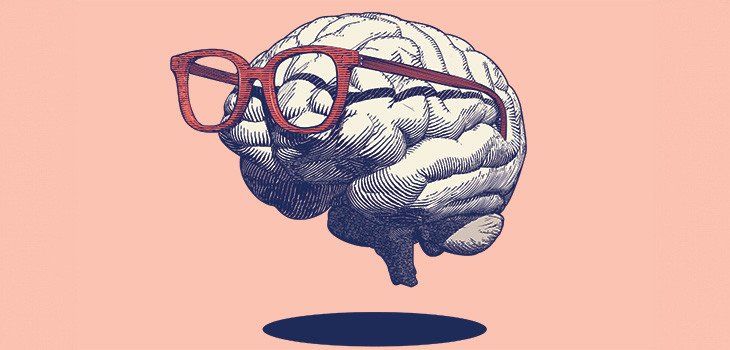The Specialized Lenses of Psychology: A Framework for Understanding Human Experience
Psychology, the scientific endeavor to understand the mind and behavior, extends far beyond the simplified tropes of popular culture. It is not a monolithic field but a constellation of specialized branches, each providing a unique lens through which to examine the intricate tapestry of human experience. These branches are not isolated silos; they are deeply interconnected, often borrowing theories and applying findings from one another to address complex questions. A thorough exploration of key branches—namely Clinical, Developmental, Cognitive, Social, and Industrial-Organizational psychology—reveals a dynamic and collaborative science dedicated to both understanding fundamental processes and applying that knowledge to improve human well-being and societal function.
Clinical Psychology: The Nexus of Science and Therapeutic Practice
Clinical psychology stands as the most visible branch, tasked with the integration of science and clinical knowledge to understand, prevent, and relieve psychologically-based distress or dysfunction. [1] Its domain is the assessment and treatment of mental illness, abnormal behavior, and psychiatric problems. [2] This field operates on a scientist-practitioner model, where clinical work is firmly grounded in empirical research. [1] A clinical psychologist’s role is twofold: assessment and intervention. Assessment involves more than just conversation; it is a systematic process that can include structured interviews, behavioral observations, and the administration of psychometric and neuropsychological tests to evaluate cognitive, emotional, and interpersonal functioning. [3] This diagnostic process provides a detailed formulation of a client’s challenges.
Intervention, most commonly in the form of psychotherapy, is where these insights are translated into action. [1] Rather than a single method, clinicians draw from various evidence-based orientations. [1] A powerful example is Cognitive Behavioral Therapy (CBT), which operates on the principle that psychological distress is often maintained by unhelpful patterns of thinking and behavior. CBT focuses on identifying and changing these cognitive and behavioral patterns to improve emotional regulation and problem-solving. [2] This structured, goal-oriented approach has proven highly effective for a range of conditions, including anxiety and depression. It is this commitment to scientifically validated assessment and treatment that distinguishes clinical psychology, making it a cornerstone of the mental health profession dedicated to promoting resilience and personal growth. [1][4]
The Architecture of the Mind: The Synergy of Developmental and Cognitive Psychology
Understanding the human mind requires examining both its present architecture and its developmental trajectory. This is where the symbiotic relationship between cognitive and developmental psychology becomes indispensable. Developmental psychology is the scientific study of how and why human beings change over the course of their lives, from infancy to old age. [5] Cognitive psychology, in turn, investigates the internal mental processes—such as perception, memory, problem-solving, and language—that underlie these changes. [6][7] One cannot be fully understood without the other; developmental psychology charts the what and when of our growth, while cognitive psychology explains the how. [8]
The foundational work of Jean Piaget illustrates this interplay perfectly. Piaget’s stage theory proposed that children’s thinking doesn’t just become faster as they age, but that it undergoes qualitative shifts, moving through distinct stages of cognitive capability, such as the transition from concrete to abstract logical thought. [6][9] While revolutionary, this theory has been refined by modern perspectives. For instance, the work of Lev Vygotsky emphasized that cognitive development is not a solitary journey but is profoundly shaped by social interaction and cultural context. [10][11] Vygotsky introduced the concept of the “Zone of Proximal Development,” the crucial gap between what a learner can do alone and what they can achieve with guidance. [10] This synergy directly informs real-world applications, most notably in education. [12][13] Understanding the cognitive limitations and capabilities at different developmental stages allows educators to design curricula that are appropriately challenging, fostering effective learning and preventing the frustration that arises from material that is too abstract for a child’s current stage of cognitive development. [12][14]
The Individual in Context: The Bridge Between Social and I-O Psychology
No individual operates in a vacuum. Our thoughts, feelings, and actions are powerfully shaped by our social environment. Social psychology is the branch dedicated to studying these forces, examining how the presence and actions of others influence an individual. [15] Its research delves into group behavior, conformity, prejudice, and interpersonal attraction. Some of the most profound—and unsettling—insights in psychology have emerged from this field. The conformity experiments of Solomon Asch, for example, demonstrated that individuals will often disregard their own correct perceptions to align with a unanimous but incorrect group majority. [16][17] Even more starkly, Stanley Milgram’s obedience experiments revealed that ordinary people were capable of inflicting what they believed to be severe pain on another person when instructed to do so by an authority figure, a sobering testament to the power of situational pressures. [16][18]
This fundamental understanding of human social behavior provides the theoretical bedrock for Industrial-Organizational (I-O) psychology. [19][20] I-O psychology applies these principles directly to the workplace, aiming to improve organizational effectiveness and employee well-being. [15][21] For instance, social psychological theories on group dynamics and cooperation are used to structure high-performance teams. [15] Research on motivation and persuasion informs leadership training and employee engagement initiatives. Furthermore, an understanding of social cognition and unconscious bias is critical for developing fair and effective systems for hiring, promotion, and performance appraisal, thereby creating more equitable and productive work environments. [15] I-O psychology thus serves as a powerful example of how theoretical social science can be translated into practical, high-impact solutions for real-world organizations. [19]
In conclusion, the diverse branches of psychology offer a powerful and comprehensive toolkit for understanding the human condition. From the clinical psychologist treating complex mental health issues to the developmental psychologist mapping the course of a human life, and the social psychologist uncovering the hidden forces that guide our interactions, each field provides essential insights. [2][5] Their true power, however, lies in their interconnectedness. A modern approach to solving complex human problems, whether it’s enhancing educational outcomes or building healthier workplaces, requires an integrative perspective that draws upon the specialized knowledge of each of these vital fields.



